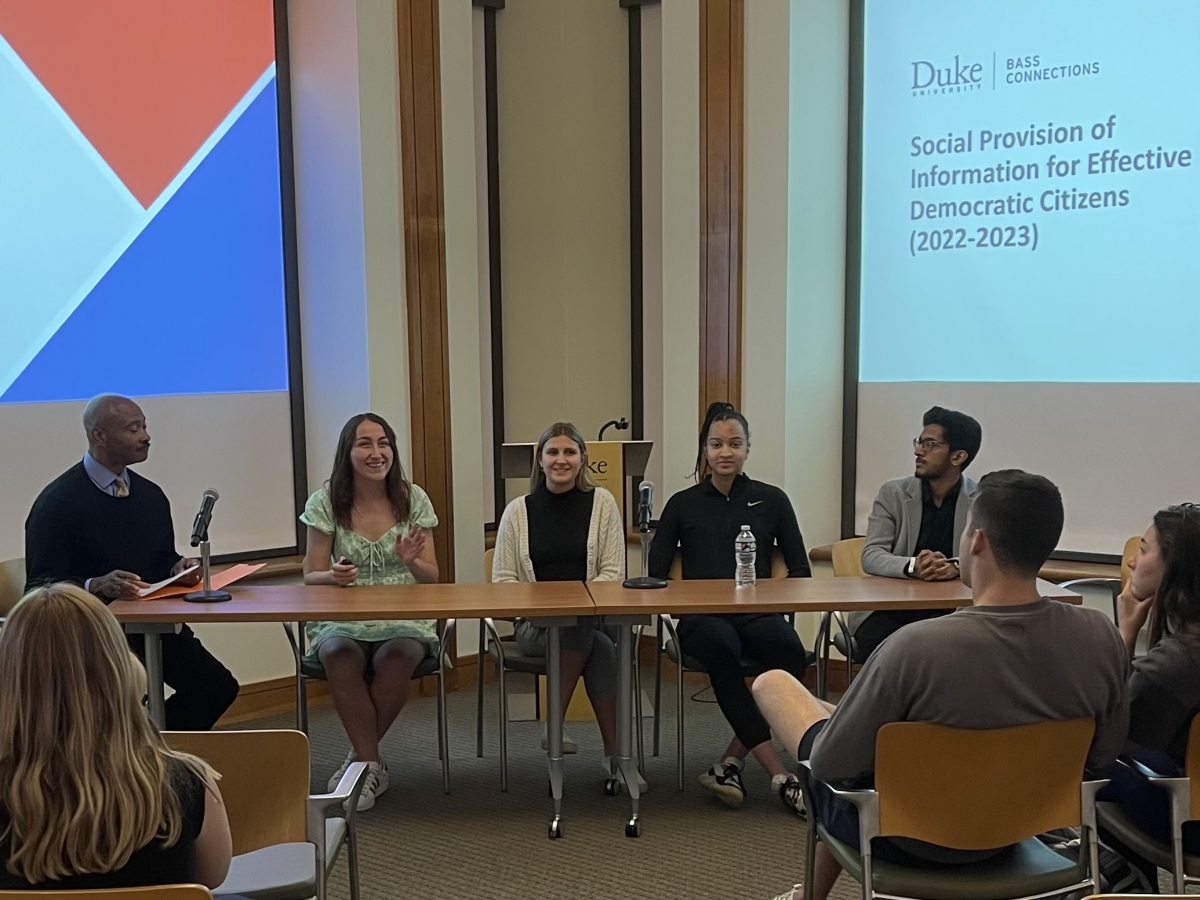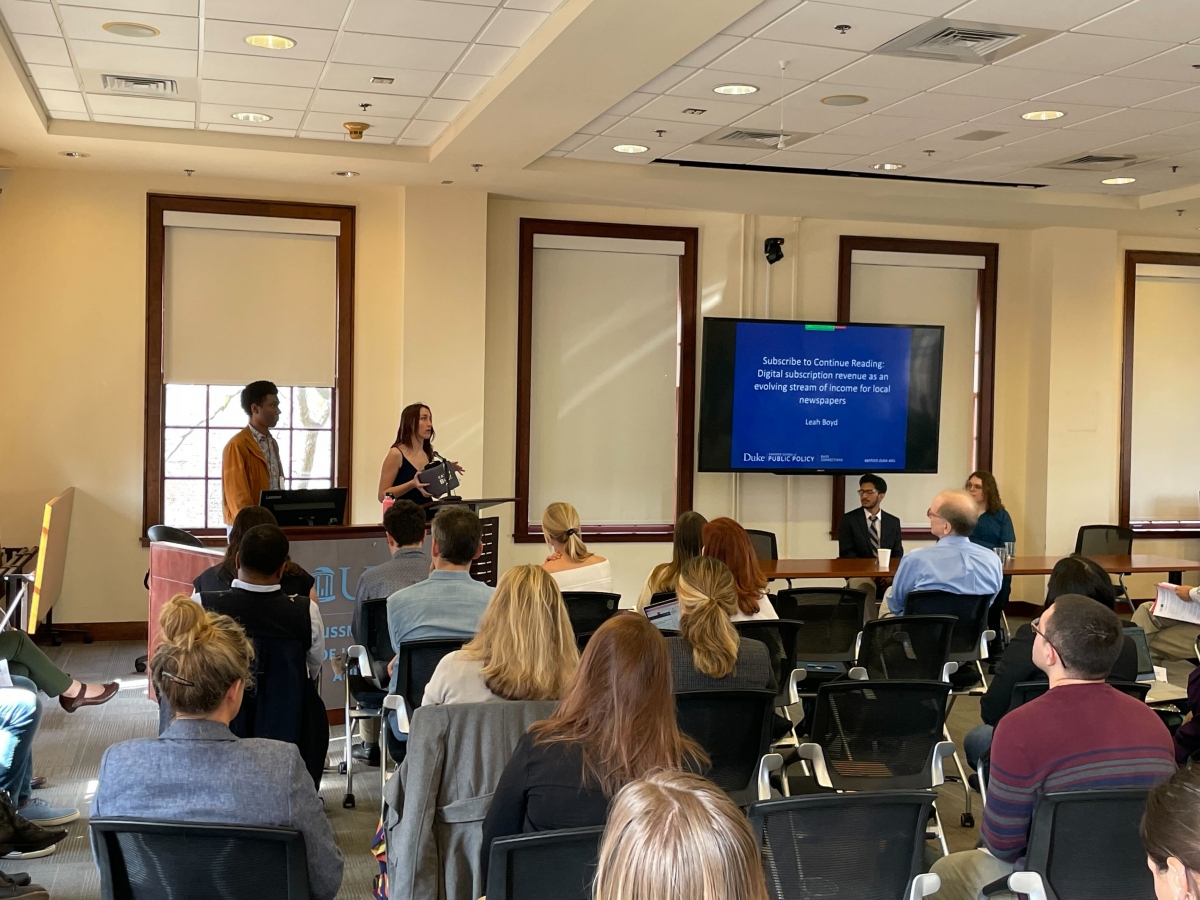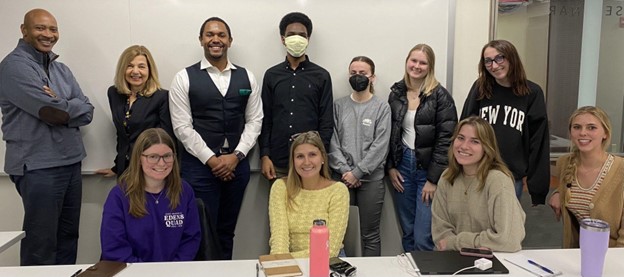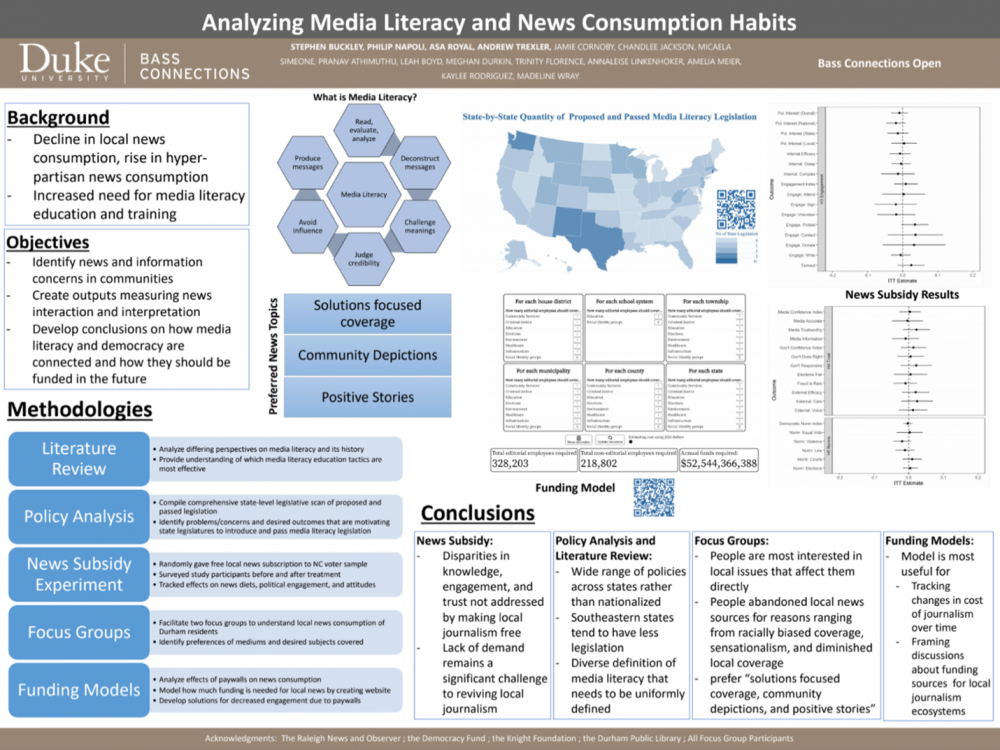The Roles of Media and Information in a Changing Democracy
Project Team

Team profile by Jamie Chornoby, Micaela Simeone and Meghan Durkin
Research across disciplines has documented the routine failures of ordinary people to be effective democratic citizens. The digital and hyper-partisan media landscape enhances the conditions that allow disinformation to flourish, adding additional obstacles to receiving corrective information and discerning what materials are accurate and reliable.
Our project team explored remedies to the growing information gaps that threaten democracy. Through a dynamic, multi-method research approach, we explored what a variety of factors — including information subsidies, media/digital literacy education, community information needs, financial systems and policy interventions — might reveal about the path towards a healthy, informed democracy.
Research Priorities and Findings
The first branch of our research gauged local information needs. Our team conducted a literature review, capturing the evolution of local news and information ecosystems, local news and information needs and proposed and implemented solutions. We then led two focus groups in Durham, North Carolina to assess the particular news information needs of the local community.
Second, our team sought to understand and address financial aspects of local news ecosystems. We refined a model that estimates the total cost to provide Americans with news information they need. We improved the model to account for inflation, demographic coverage and regional differences. We translated the model into a functional website, which can inform local news research in communities, provide bottom-line funding numbers for stakeholders and anchor discussions about community information needs.
Two other sub-projects targeted cost-focused local news provisions. Our randomized field experiment examined whether making local news free modifies news consumption or citizens’ knowledge, attitudes and behaviors. The study found that the direct subsidy did not substantially increase local news consumption, improve knowledge or shift attitudes or behaviors. A parallel project delved into digital subscription costs, finding that local news subscription prices vary widely across the country, presenting some low-income communities with very steep barriers to consumption. All of our financial projects were showcased at the Local Journalism Researchers Workshop co-hosted by the UNC Center for Innovation & Sustainability in Local Media and the DeWitt Wallace Center for Media & Democracy.

Third, our team wanted to understand media literacy in terms of its history, contemporary policies and future implementation. To do this, we conducted a literature review, interviewed practitioners in the media literacy space and reviewed legislative policies. Our literature review reached back to the 1930s, finding that the media literacy discipline has long faced cohesion and definitional challenges. We concluded that future researchers should address gaps in the scholarship that include surveys of the experiences of media literacy students and identifying robust methods for evaluating the effectiveness of different approaches.
We also sought to understand the state of media literacy policy in the U.S. We reviewed relevant legislative activity, gathering nearly 100 bills and noting that media literacy is a policy issue gaining momentum predominantly at the state rather than federal level. We found that states’ media literacy initiatives are often successful when added to existing curricula such as civics education. Additionally, our review showed that media literacy as an education policy issue can be politically charged. However, though approaches to these curricula vary across state and political lines, most legislation appears to share a motivation to address concerns about the broader notions of “digital citizenship” and critical thinking in the disinformation age.

Successes and Challenges
Our team faced some obstacles related to defining key terms and recruiting participants. What is the most accurate characterization of media literacy and related terms, such as digital literacy, news literacy and media and information literacy? We reflected on the content related to possible key terms, the implications of possible definitions and the goals of the work captured under these umbrellas. Furthermore, we were unable to recruit enough Spanish-speaking people for focus groups. We adjusted our plans by conducting two English-language sessions instead. We spoke with community members to develop more effective strategies for Spanish-speaking recruitment efforts in the future.
Despite these challenges, our team was successful in many of its endeavors. We updated a growing body of information regarding community information needs, using both on-the-ground data collection, literature reviews and policy reviews; we gathered insights from multiple sectors to understand the history, present state and future needs in media literacy; and we created new knowledge about the financial incentives and budgetary needs for local news consumption and provision.
Future Plans
Looking ahead, we are using relationships with local news creators to share our findings and inform coverage moving forward. After strengthening our relationship with a local school, we hope to support their exploration of a media literacy curriculum. We also have plans to explore community information in other locations, including Maine. Finally, our team has submitted proposals to conferences to continue sharing our work with a larger community of journalists, scholars and government officials. Our research has spurred further questions about citizen knowledge disparities, barriers to local news consumption and funding strategies. Researchers will continue to work to understand the full extent of the obstacles to informed citizenship.
We would like to thank the Democracy Fund, the Knight Foundation and the Raleigh News & Observer for their partnership.
Analyzing Media Literacy and News Consumption Habits
Poster by Stephen Buckley, Philip Napoli, Asa Royal, Andrew Trexler, Jamie Cornoby, Chandlee Jackson, Micaela Simeone, Pranav Athimuthu, Leah Boyd, Meghan Durkin, Trinity Florence, Annaleise Linkenhoker, Amelia Meier, Kaylee Rodriguez and Madeline Wray

